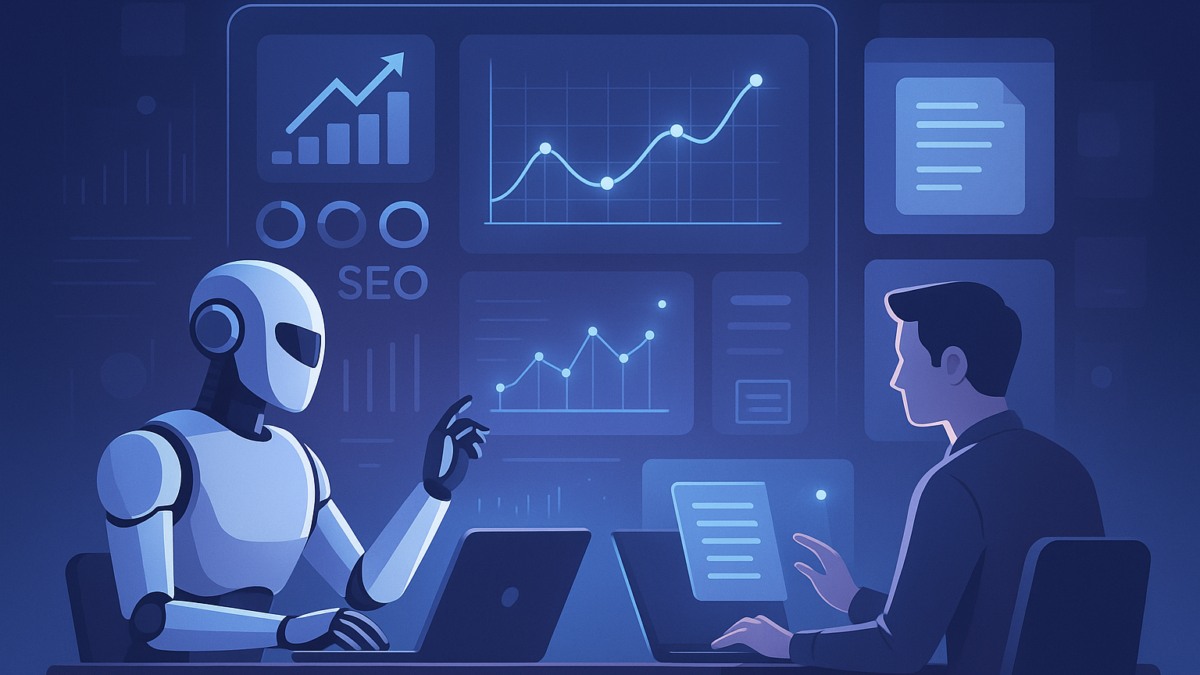AI-Generated Content in B2B: Power, Pitfalls & Best Practices
Table of Contents
Introduction
In 2025, AI-generated content has become a powerful tool in the arsenal of B2B marketers. From automated blog posts to AI-assisted email campaigns and whitepapers, artificial intelligence is streamlining workflows, lowering production costs, and unlocking new levels of personalization. But with great power comes the need for caution: authenticity, trust, and strategic oversight remain crucial.
In this blog, we’ll explore the evolving role of AI-generated content in B2B marketing, its key advantages, challenges, and actionable best practices to ensure results without compromising quality.
The Power of AI in B2B Content Creation
AI tools like OpenAI’s ChatGPT, Jasper, and Copy.ai are revolutionizing how content is created. Here’s why B2B brands are embracing AI:
- Scalability at Speed: AI allows marketing teams to produce large volumes of content quickly—be it product descriptions, ad copy, newsletters, or social media posts. This helps businesses keep up with the growing content demands across channels.
- Personalization and Relevance: AI models can generate content tailored to specific personas, verticals, or buyer stages. With data integration, it can personalize messages based on user behavior, industry pain points, or even past interactions.
- Cost-Effective Production: By reducing the need for external copywriters or in-house bandwidth, AI cuts content production costs while still maintaining reasonable quality, especially for first drafts or ideation.
- 24/7 Content Assistance: AI doesn’t take breaks. B2B marketers can rely on it to brainstorm, write, and edit anytime—boosting productivity around the clock.
See Also: The Role of AI in Building Buyer Intent Data for Content Syndication
Pitfalls and Limitations of AI-Generated Content
Despite its strengths, relying solely on AI for B2B content can introduce serious risks:
- Lack of Originality and Voice: AI often pulls from trained patterns, which may lead to generic or repetitive content. Maintaining a strong, unique brand voice becomes challenging without human intervention.
- Inaccuracy and Hallucination: AI-generated content can sometimes fabricate statistics, misquote sources, or deliver incorrect information—a critical issue in industries that demand precision and trust.
- SEO and Compliance Concerns: Unoptimized or unverified AI content can hurt search rankings. Moreover, it may inadvertently violate compliance or copyright standards if not carefully reviewed.
- Erosion of Trust: If prospects or clients discover your brand relies too heavily on AI, it could raise questions about authenticity, especially in high-stakes, relationship-driven B2B industries.
Best Practices for Using AI in B2B Content Marketing
To get the best of both worlds—AI efficiency and human creativity—follow these best practices:
- Human-in-the-Loop (HITL) Editing: Never publish raw AI content. Assign a human editor to review, fact-check, and refine each piece to match your brand voice, strategy, and accuracy standards.
- Use AI for Ideation, Not Just Execution: AI is a great tool for brainstorming blog topics, creating outlines, or rewriting CTAs. Let it handle repetitive tasks while your team focuses on strategic messaging.
- Audit Content with SEO Tools: Run AI-generated content through tools like SEMrush, Clearscope, or Surfer SEO to ensure keyword optimization, readability, and alignment with search intent.
- Disclose and Build Transparency: If appropriate, be transparent about your use of AI in your content. It builds trust, especially when used to augment (not replace) human insights.
- Monitor Performance Continuously: Track engagement, conversions, and bounce rates of AI-assisted content versus human-written content. Let data guide your content strategy.
Real-World Use Cases
- Product Marketing Teams: Use AI to draft landing page copy, feature descriptions, and comparison pages.
- Content Teams: Generate first drafts for blogs, newsletters, and case studies—then humanize them.
- Sales Enablement: Auto-create sales scripts and email sequences based on customer personas.
- Customer Support: Create AI-powered knowledge base articles and FAQs.
Conclusion
AI is here to stay—and in B2B content marketing, it’s already reshaping how we write, communicate, and scale. However, the best results come when AI and human marketers work hand-in-hand. By leveraging the power of AI while applying human oversight, B2B brands can accelerate content production without losing their voice, trust, or strategic impact.
Looking to level up your B2B content game with smart tools and syndication? Explore our B2B content solutions





